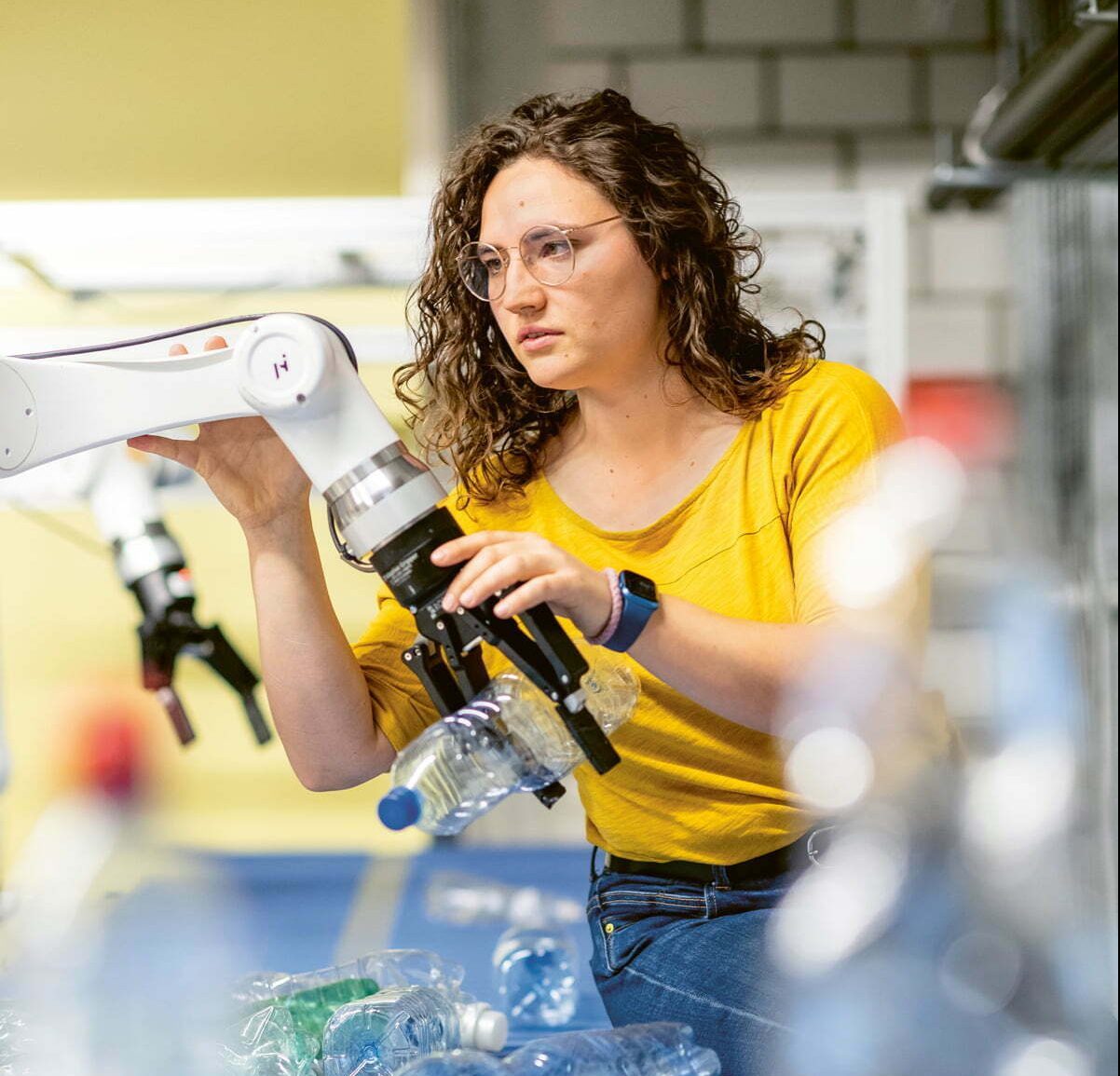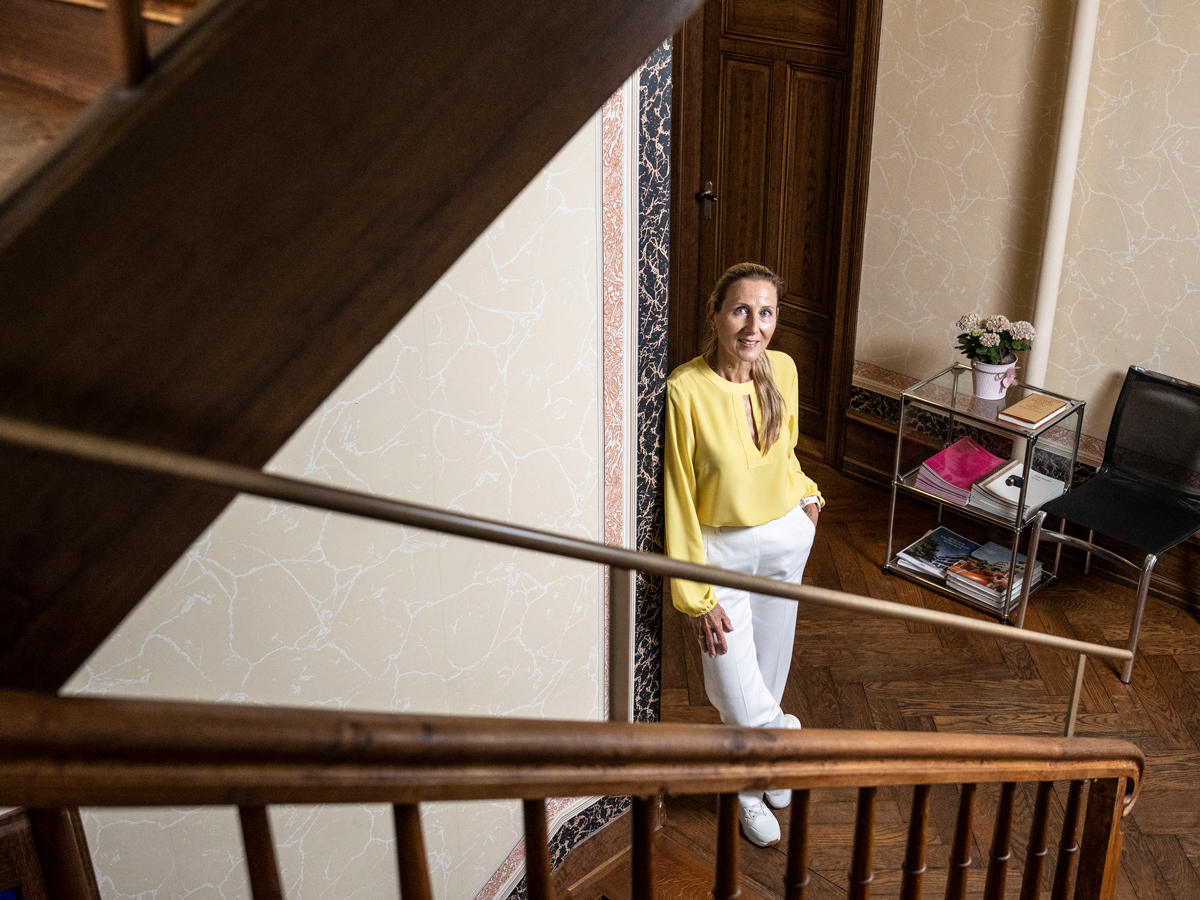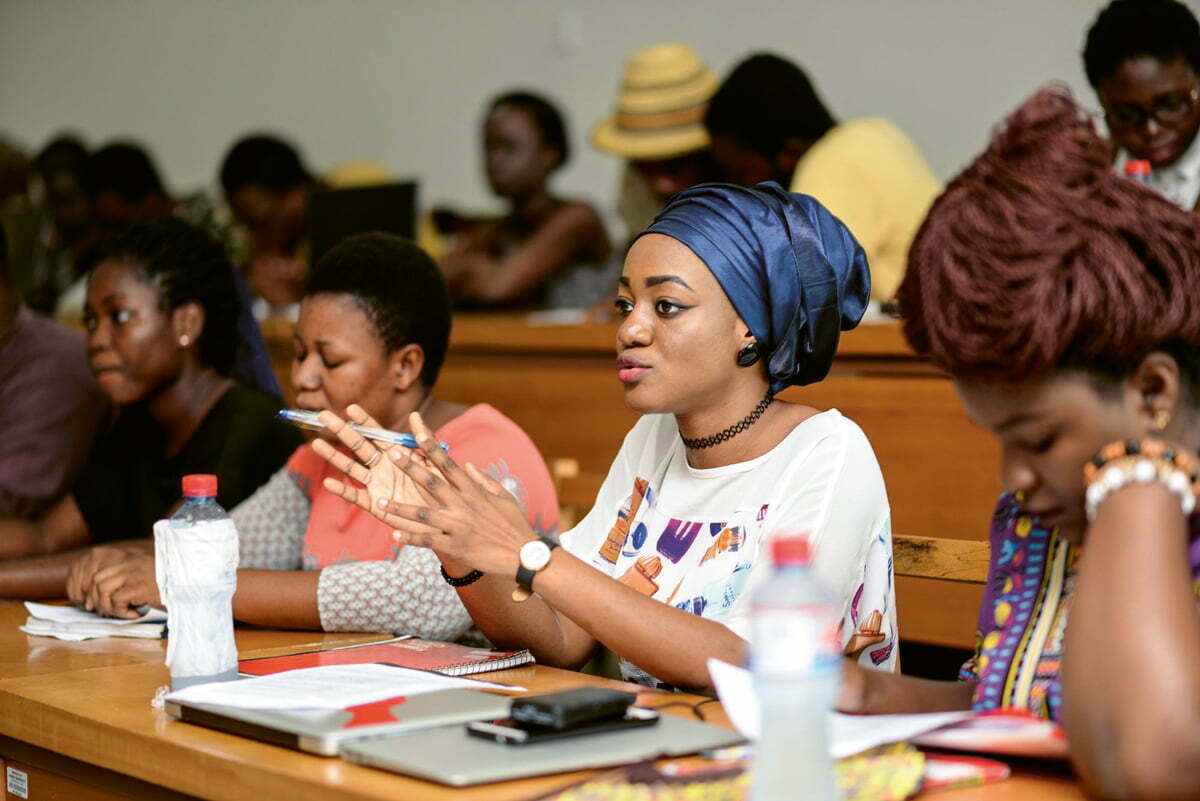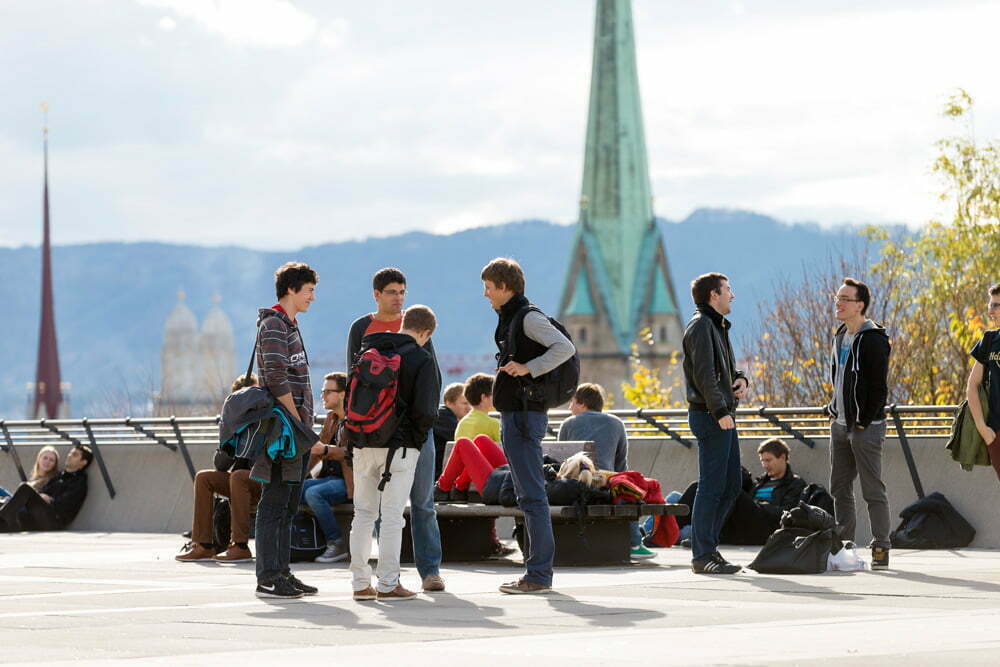Involved on multiple levels
In the student project Autonomous River Cleanup, Excellence Scholar Xenia Voellmy is tackling water pollution. The mechanical engineering student is looking for ways to keep our planet habitable in the long term.

© ETH Foundation / Daniel Winkler
© ETH Foundation / Daniel Winkler
The fact that Xenia Voellmy is studying at ETH is mainly due to her brother: in her first Bachelor‘s degree in mathematics, dance and theatre studies, she missed the practical relevance. At the time, her brother was studying mechanical engineering and working on the Scalevo project, a venture in which he co-developed the prototype of Scewo, the stair-climbing wheelchair. Xenia Voellmy was intrigued by the idea of being able to test her knowledge in practice while still studying and work on solutions to major problems at the same time – and enrolled for a second Bachelor‘s degree.
Technology for clean rivers
Xenia Voellmy is now working on her Master‘s thesis and on the student project Autonomous River Cleanup, or ARC. Along with 25 students and postdocs from various disciplines and universities, she’s aiming to develop technical solutions to combat water pollution in line with the initiative launched in 2019. The team receives support from ETH as well as from various companies and foundations in the form of access to infrastructure, material and financial resources. “Once waste has arrived in the sea, it becomes difficult to remove it. That‘s why we’re starting with rivers,” Xenia Voellmy explains. In 2021, the group was able to trial the technologies for the first time in a realistic environment: on a floating platform in the Limmat, they tested the measures they believe will efficiently remove waste from bodies of water. The equipment includes a camera mounted on a bridge that records the amount and composition of waste in the river, an underwater barrier of air bubbles that transports the waste to the platform, a conveyor belt that takes the material out of the water, and robotic arms fitted with a camera that then sort the waste by material and let the biomass roll back into the water.
Xenia Voellmy is now dedicating her Master‘s thesis to the sorting mechanism. “Automatic recognition makes it easy to sort and reuse recyclables. This creates a financial incentive for removing the waste,” the aspiring mechanical engineer explains. She wants to find out how the algorithm can be trained so that even silty and wet objects can be correctly identified. In addition, the mechanism must be developed to work in a small space and become more mobile. The idea is that a shipping container equipped with a conveyor belt and robotic arms will be able to transport the system to places where river pollution is a major problem, such as Southeast Asia or India.
A positive impact on the world
The fact that Xenia Voellmy can commit herself to a passion project like ARC while studying at the same time is only possible thanks to an Excellence Scholarship: “To finance my Bachelor‘s degree, I worked part-time. Now being able to fully concentrate on my studies and ARC means a lot to me,” the young woman says. She also appreciates the chance to meet with donors, visit companies and network with other Excellence Scholars. “Since our last meeting, two of them have started coming to jazz dance with me,” the student laughs. What she will do after graduation is still open. Possible options include volunteering abroad, working on a spin-off related to the ARC project or entering industry. Xenia Voellmy, who is also politically active in calling for solutions to climate change, says: “First and foremost, I want to give something back and have a positive impact on the world.”


